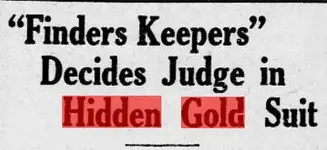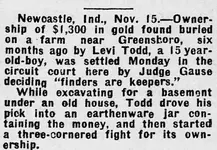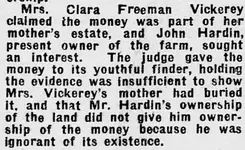- #1
Thread Owner
Great Falls daily tribune. (Great Falls, Mont.), 16 Nov. 1920.
If you don't know it's there, It's not Yours



Great Falls daily tribune. (Great Falls, Mont.) 1895-1921, November 16, 1920, Image 1 « Chronicling America « Library of Congress
If you don't know it's there, It's not Yours




Great Falls daily tribune. (Great Falls, Mont.) 1895-1921, November 16, 1920, Image 1 « Chronicling America « Library of Congress
Amazon Forum Fav 👍
Last edited:





